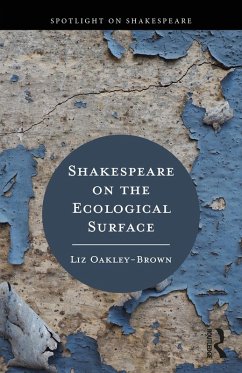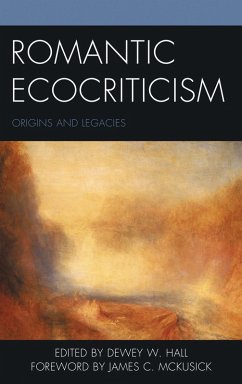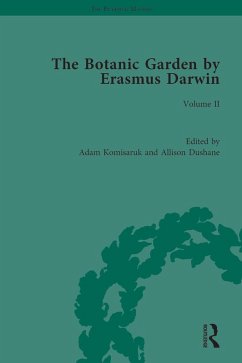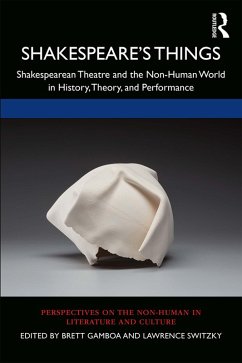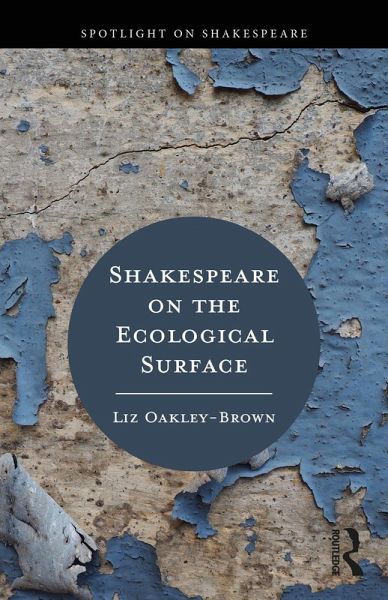
Shakespeare on the Ecological Surface (eBook, ePUB)
Versandkostenfrei!
Sofort per Download lieferbar
26,95 €
inkl. MwSt.
Weitere Ausgaben:

PAYBACK Punkte
13 °P sammeln!
Shakespeare on the Ecological Surface uses the concept of the 'surface' to examine the relationship between contemporary performance and ecocriticism. Each section looks, in turn, at the 'surfaces' of slick, smoke, sky, steam, soil, slime, snail, silk, skin and stage to build connections between ecocriticism, activism, critical theory, Shakespeare and performance.While the word 'surface' was never used in Shakespeare's works, Liz Oakley-Brown shows how thinking about Shakespearean surfaces helps readers explore the politics of Elizabethan and Jacobean culture. She also draws surprising paralle...
Shakespeare on the Ecological Surface uses the concept of the 'surface' to examine the relationship between contemporary performance and ecocriticism. Each section looks, in turn, at the 'surfaces' of slick, smoke, sky, steam, soil, slime, snail, silk, skin and stage to build connections between ecocriticism, activism, critical theory, Shakespeare and performance.
While the word 'surface' was never used in Shakespeare's works, Liz Oakley-Brown shows how thinking about Shakespearean surfaces helps readers explore the politics of Elizabethan and Jacobean culture. She also draws surprising parallels with our current political and ecological concerns. The book explores how Shakespeare uses ecological surfaces to help understand other types of surfaces in his plays and poems: characters' public-facing selves; contact zones between characters and the natural world; surfaces upon which words are written; and physical surfaces upon which plays are staged.
This book will be an illuminating read for anyone studying Shakespeare, early modern culture, ecocriticism, performance and activism.
While the word 'surface' was never used in Shakespeare's works, Liz Oakley-Brown shows how thinking about Shakespearean surfaces helps readers explore the politics of Elizabethan and Jacobean culture. She also draws surprising parallels with our current political and ecological concerns. The book explores how Shakespeare uses ecological surfaces to help understand other types of surfaces in his plays and poems: characters' public-facing selves; contact zones between characters and the natural world; surfaces upon which words are written; and physical surfaces upon which plays are staged.
This book will be an illuminating read for anyone studying Shakespeare, early modern culture, ecocriticism, performance and activism.
Dieser Download kann aus rechtlichen Gründen nur mit Rechnungsadresse in A, B, BG, CY, CZ, D, DK, EW, E, FIN, F, GR, HR, H, IRL, I, LT, L, LR, M, NL, PL, P, R, S, SLO, SK ausgeliefert werden.




